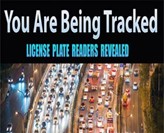
Imagine you are going to see an old high school friend you have not seen in ages. You drive across a few states and are in a strange town. Arriving later in the evening, you have to circle back a few times and turn around because you make some wrong turns. You are weaving down the road a little as you try to read google maps on your phone.
Suddenly there are squad lights behind you. You pull over. A cop opens her squad door with her gun drawn. The officer tells you to get out of your car slowly. Forgetting what happened in the movie “My cousin Vinny,” you get out and say yeah I was wrong for what I did. Officer yells at you demanding to know why you robbed the store. Your mind spins and know you are about to go on a trip down the legal rabbit hole of confusion.
Far fetched story? Unfortunately, not. In 2018, a California man sued the Contra Costa County Sheriff’s department in federal court after he and his brother were pulled over, held at gunpoint, injured by police, unlawfully searched and handcuffed because a license plate reader made by Vigilant Solutions (now called Motorola Solutions) notified officers the vehicle was stolen. “Sheriff pays East Bay privacy advocate nearly $50K in license plate reader case,” https://www.ktvu.com/news/sheriff-pays-east-bay-privacy-advocate-nearly-50k-in-license-plate-reader-case
While there are a number of ways this mistake could have happened, one increasing way is due to error with an automated license plate reader (ALPR). Some squad cars now have an automatic license plate reader. Sometimes the cameras are mounted on poles in a neighborhood. The pole mounted license plate cameras snap pictures of any vehicle that goes down their streets. They also take pictures of faces as well. Or even a bicycle rider that drives by. License plate scanners can read across multiple lanes of traffic, find parked stolen vehicles, and even scan for cars of missing people.
The system catalogs every license plate it passes and records the position in a police database. The ALPR system can be useful in combatting crime, but at what cost of personal privacy? Further, in situations like mentioned above what happens if the plate reader is wrong? Plate reader mistakes were detailed in a 2021 Texas A&M Transportation Institute study suggests factors like weather or outdated databases can result in false-positive hits. Zmud, J., Walden, T., Ettelman, B., Higgins, L., Graber, J., Gilbert, R., & Hodges, D. (2021, April). State of knowledge and practice for using automated license plate readers for traffic safety purposes (Report No. DOT HS 813 051). National Highway Traffic Safety Administration, https://rosap.ntl.bts.gov/view/dot/55586
The readers also raise serious privacy concerns since they log data indiscriminately on both potential offenders and people without any criminal history, outstanding tickets, or outstanding warrants. Or readers can also be used to track people participating in unpopular protests. “As protests over the killing of George Floyd continue, here’s how police use powerful surveillance tech to track them,” https://www.cnbc.com/2020/06/18/heres-how-police-use-powerful-surveillance-tech-to-track-protestors.html
ALPR systems are not the first time the Supreme Court has confronted the impact of technology and privacy.
Similar to the issues surrounding GPS tracking that the Supreme Court articulated in United States v. Jones, 565 U.S. 400 (2012) case where the Court required a warrant before tracking a person’s car via GPS. Jones questioned technology that is making it much easier to collect all of the information people disseminate about themselves. The police would not need a warrant to assign an officer to follow any given car around, but the ALPR system allows them to track many more people for a much lower cost. In the oral argument on Jones, Justice Samuel Alito stated that people’s use of technology is changing what the expectation of privacy is for the courts. “You know, I don’t know what society expects and I think it’s changing. Technology is changing people’s expectations of privacy. Suppose we look forward 10 years, and maybe 10 years from now 90 percent of the population will be using social networking sites and they will have on average 500 friends and they will have allowed their friends to monitor their location 24 hours a day, 365 days a year, through the use of their cell phones. Then — what would the expectation of privacy be then?” United States v. Jones (Oral Argument Transcript, https://www.oyez.org/cases/2011/10-1259 ) p. 44. Years earlier the Supreme Court stated, that “an individual operating or traveling in an automobile does not lose all reasonable expectation of privacy simply because the automobile and its use are subject to government regulation.” Delaware v. Prouse, 400 U.S. 648, 662 (1979). Similarly, the Court examined the use of a beeper in contrast to limited monitoring from “twenty-four hour surveillance of any citizen in the country,” reserving the question of whether such “dragnet type law enforcement practices” merit the application of different constitutional principles. U.S. v. Knotts, 460 U.S. 276, 283-84 (1983). The Court also had privacy concerns with another piece of technology, thermal imaging devices to monitor heat radiation in or around a person’s home, when the Court held that even if conducted from a public vantage point, such monitoring is unconstitutional without a search warrant so that people are not left “at the mercy of advancing technology.”. Kyllo v. United States, 533 U.S. 27 (2001).
Hopefully, courts will follow the skepticism of the Supreme Court and be wary of law enforcement technology which can track our daily lives. As the Court explained when a warrant was needed to track cell phone data, the “depth, breadth, and comprehensive reach” of this data, along with “the inescapable and automatic nature of its collection” necessitates a warrant supported by probable cause. Carpenter v. United States, 138 S. Ct. 2206 (2018)
Protect your privacy rights in a criminal case by calling Attorney Paul Ksicinski at 414-207-6345.

